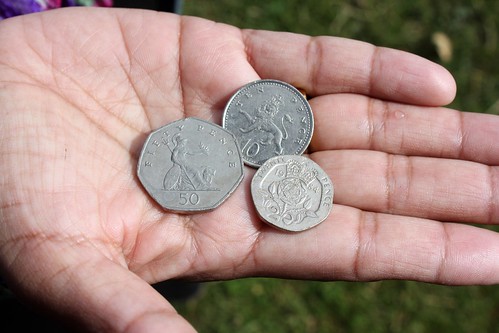I try hard not to waste anything. It sickens me to think that I didn’t use a resource in the most efficient way possible, and the times when I was most wasteful still haunt me. (The time that I allowed 10 pounds of ground beef to spoil in the fridge before I could cook it is one of them.) There is more to waste than what you would first assume, however. It is not just about throwing away the cost of the product. It is, in fact, about so much more.

![]() photo credit: kevinspencer
photo credit: kevinspencer
Purchase Price (The obvious cost)
Wasting something, whether it be food, clothing, or a tool you left out in the rain, puts you out considerably. Assuming that you didn’t get full use and enjoyment out of the item, you are out the amount of the product price minus that amount of use you realized. Junking a 20-year-old car that you can no longer extend the life of will not be as wasteful as totaling out a new 2011 SUV, for example.
1. The Value
Even worse that losing out on the cost of an item is losing out on its value. If you bought a bag of salad mix on sale for 99cents, but left it in the car to spoil, you are out more than just 99cents. Assuming that the sale for that item is over, and you now have to buy the salad for its regular $2.99 price, you now have lost the full value of almost $3. The same can be said for any item that would appreciate over time. (Heirlooms, antiques, fruit trees, and anything you tended over time, for example.)
2. Your Time
Unless the item you just wasted fell from the sky, you likely had to commit some time to acquiring it. Whether it be a trip to the store, a moment placing an online order, or that extra afternoon you spent earning cash to buy it, there was time taken from other pursuits that is also wasted.
3. Peace
I don’t know too many people who can ruin a possession and not feel at least a teensy bit guilty about it. Even those who are well off can understand the tiny values of their things and assign an emotional currency to it. While nobody is perfect, and even the most well-meaning of individuals can screw up (burning dinner beyond recognition, for example), the best way to feel good about how you handle your possessions is to do so wisely.
The satisfaction that comes with knowing you’ve been a good steward of your possessions is a valuable thing to own. Even if your motives are selfish, practicing care to get the most out of your things isn’t just fiscally bright, it’s a good plan for a happier life.
